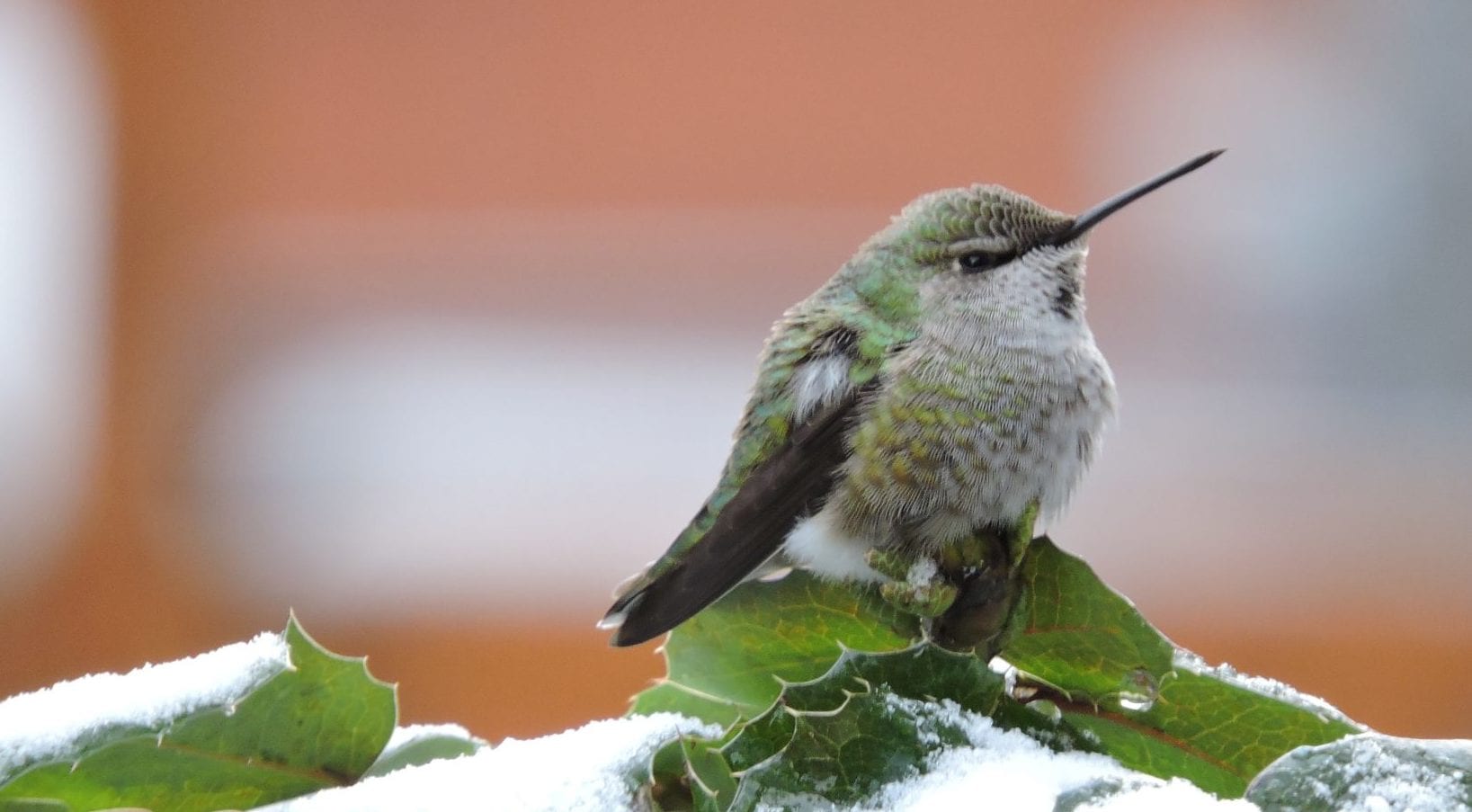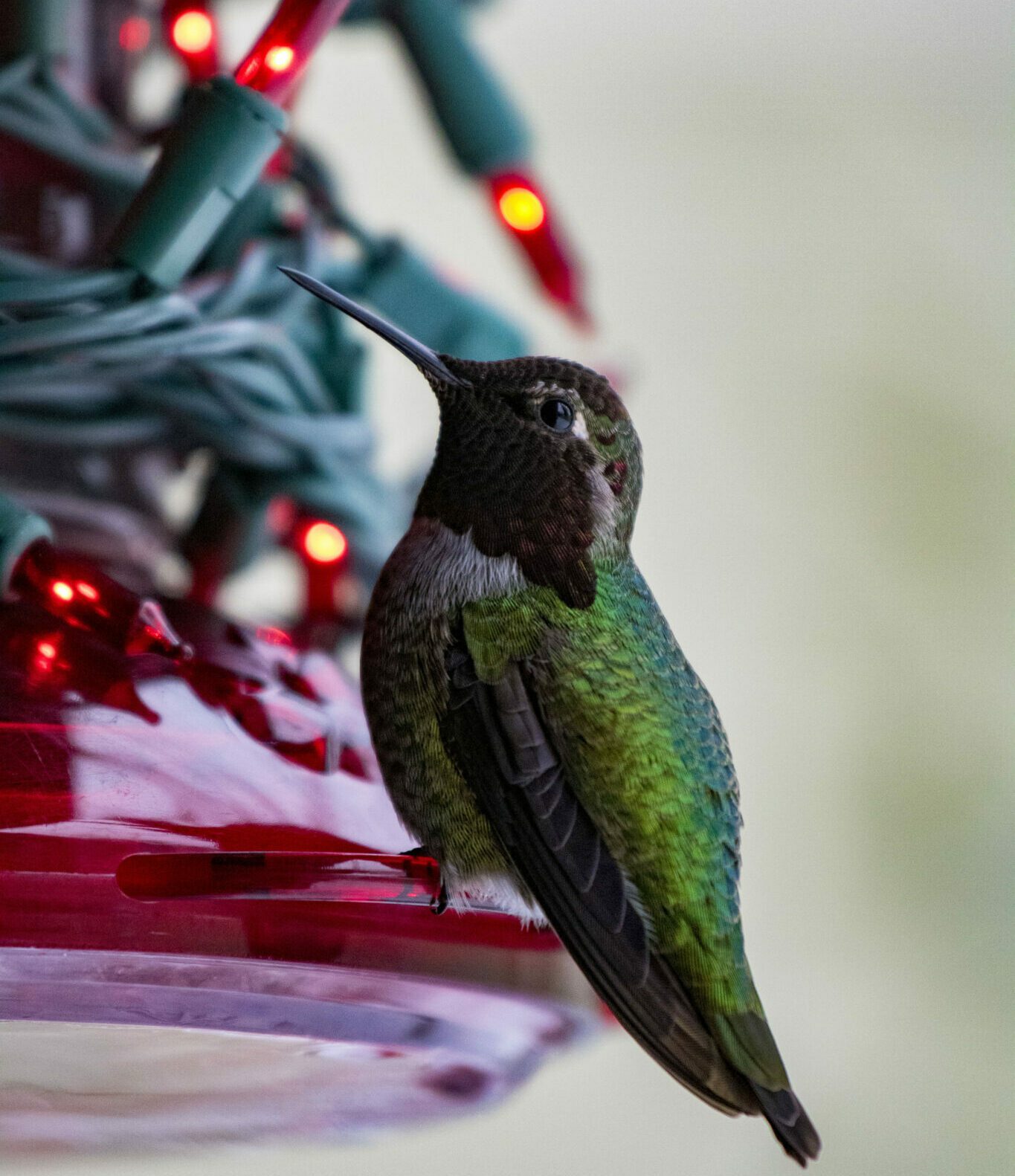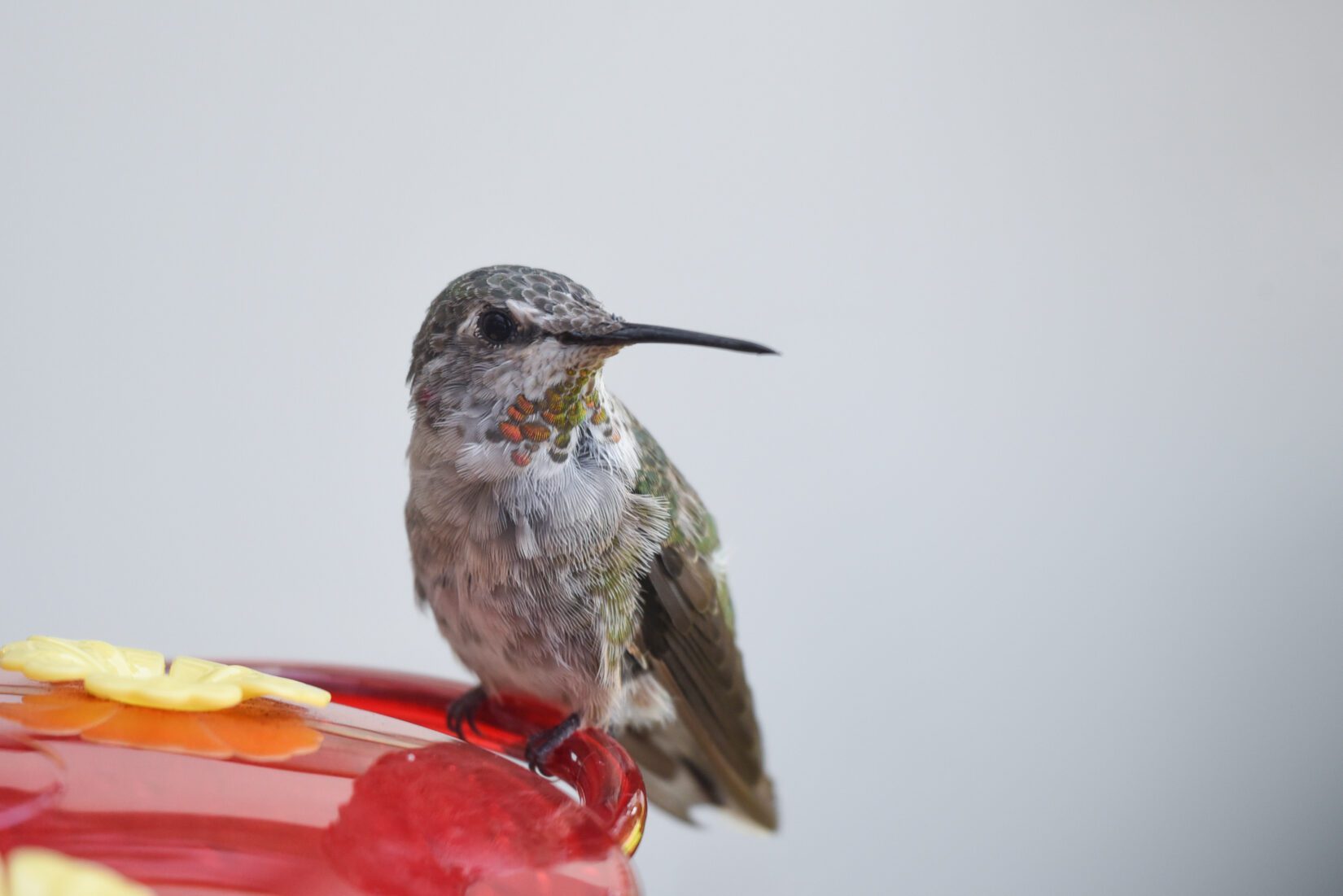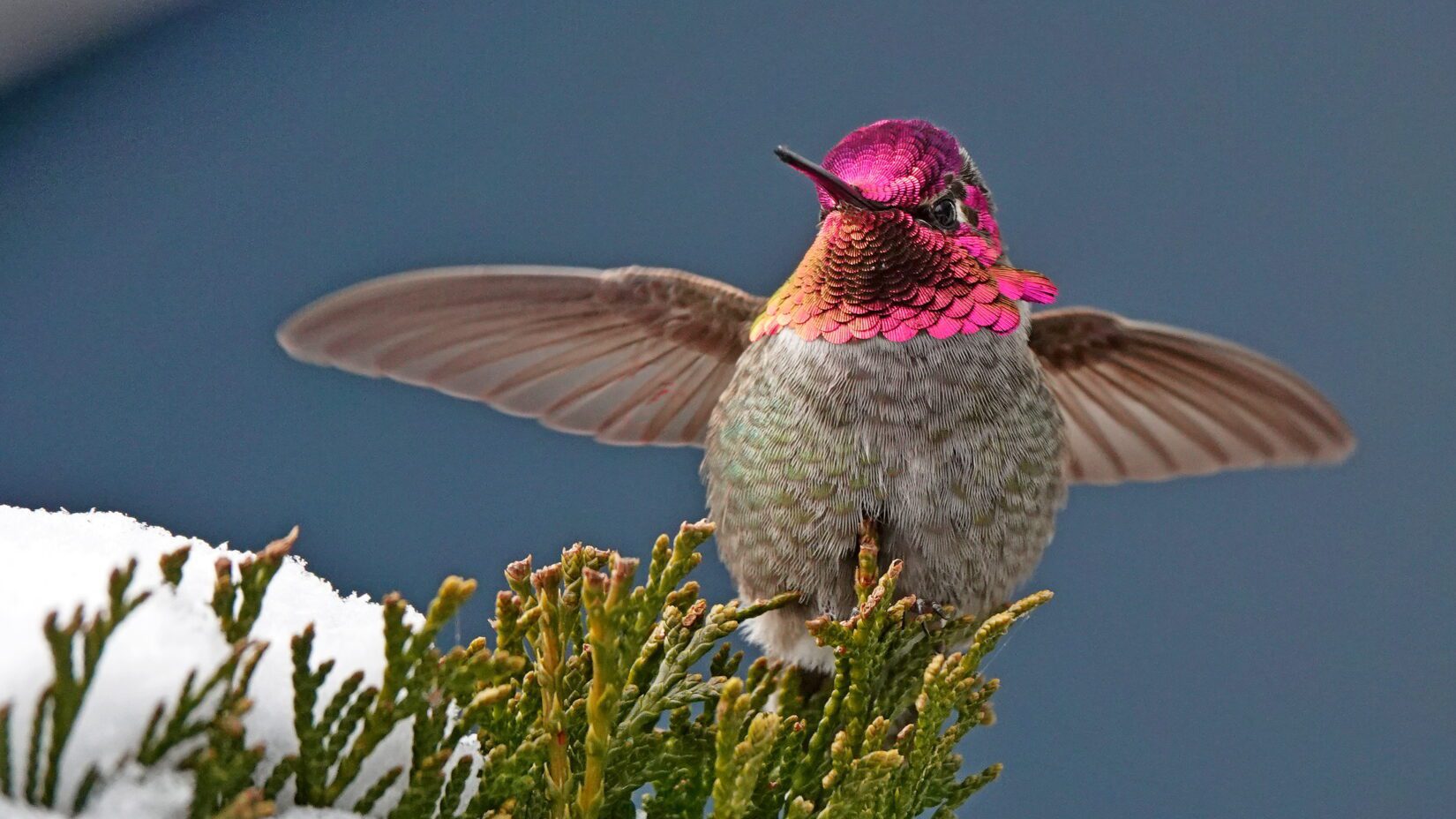Natural food sources like insects and nectar-bearing flowering plants are in short supply in winter. Nectar feeders can provide a reliable food source for hummingbirds, but they’re a big commitment. If you commit to winter feeding, you must commit fully. Non-migratory hummingbirds may come to rely on this food source and will suffer if it is interrupted. Don’t put hummingbird feeders out if you’re not prepared to clean them regularly and keep them fresh and thawed.
Resident hummingbirds are especially vulnerable to cold-induced injuries like frostbite, hypothermia, hypoglycemia (from not getting enough calories), and even defensive injuries while fighting for access to essential and limited food supplies. If you have a hummingbird feeder, find out what you need to do to keep hummingbirds safe this winter.
Keep feeders clean
Feeders often attract unusually large numbers of hummingbirds to one area – this can be a joy to watch, but also means any fungus or bacteria in the feeder will affect many birds. These infections can cause their tongues to swell and often result in death, a sad outcome for birds and bird lovers. Clean feeders regularly to prevent fungal or bacterial growth.
Clean feeders with a solution of one part white vinegar to four parts water about once a week. Change the nectar solution every few days.

Don’t let your feeder freeze
Feeders that are left empty or left to freeze can lead to starvation for the birds that have come to rely on them. Make sure your nectar never has ice crystals or freezes, and can be provided through the whole winter.
Have a friend or neighbour check your feeder if you’re away. In harsh temperatures, you may need to bring your feeder in at night to prevent freezing – this won’t disrupt the hummingbirds if the feeder is put back out first thing in the morning. Hummingbirds are most commonly injured when the feeding tube entrances get frozen – double-check the openings to make sure they’re safe.
Shallow, dish-style nectar feeders may be easier to keep thawed than taller tube feeders. Try to create a warming zone for your feeder by keeping it sheltered from wind and snow. Avoid hummingbird feeders that have exposed metal parts – these can become too cold or too hot in extreme temperatures.

You might have to get creative to keep your feeders thawed. Just make sure that your creative solutions are weather-proof and safe. Try some of these ideas:
- buy an extra feeder or two – keep one inside and alternate them as needed
- purchase a specialty store-bought feeder heater
- wrap your feeder in Christmas lights
- insulate your feeder by wrapping it in a wool sock
- wrap the feeder in plumbers tape
Make nectar the right way
While there are many different recipes available online, this is the only one we can recommend, and the one we use at our own Wild Animal Rehabilitation Centre.
To make nectar:
- boil water for two minutes
- mix one part white sugar to four parts water
- allow the mixture to cool before filling feeder
- never use honey, sweeteners, molasses, brown or raw sugar
- don’t add red food colouring or other products
White sugar is closest to the sugars they find in nature, other types of sugars or recipes could make them sick and die. Even in winter, do not change the ratio of sugar to water – adding more sugar is not healthy for these sensitive little birds.
Make your feeder visible

Hummingbirds are naturally attracted to red and other bright colours. To them, these colours signal nectar-rich flowers. This is why you see so many hummingbird feeders that come with a red base or red container. Even if your feeder isn’t red, you can make it more attractive by adding a bright red ribbon. Over time, the birds will learn and remember where to find nectar.
Don’t add red food colouring, or buy pre-made nectar dyed red. These additives simply aren’t designed or tested for tiny hummingbirds and their lightning-fast metabolism. Stick to basics, and use our simple white sugar recipe to make sure you’re keeping hummingbirds safe.
Read more about feeding birds and other wildlife (PDF).
In case of humm-ergency
Hummingbirds are resilient little birds, but extreme cold can be hard to handle. Signs a hummingbird will need help:
- on the ground
- frozen in place
- passes out after eating
- tongue is sticking out and can’t retract
- visible injuries
- soiled feathers
- struck a window
- caught by a cat
Call your local wildlife rehabilitator or our Animal Helpline at 1-855-622-7722 for advice on transport. Never place an open container of sugar water in the box, as this could damage their delicate feathers and prolong their recovery. Only offer a nectar feeder when directed by a wildlife rehabilitator.

If you find a hummingbird frozen to a feeder or other surface, they will need to be taken to a rehabilitator right away. Don’t try to pull the bird off, as you might damage their feathers or skin. Instead, carefully drizzle lukewarm water over the stuck area and try to allow the bird to pull themselves free (rather than trying to pull them free).
Torpor
Just because a hummingbird is very still, doesn’t always mean they’re in trouble. Hummingbirds can go into an energy-saving state called torpor on cold winter nights. They do this to conserve their energy in extreme cold and/or when food resources are scarce. In winter, they may also eat more insects when there’s not enough nectar from natural sources or feeders.
If you’re not sure if a hummingbird needs help, call your local wildlife rehabilitator or the BC SPCA’s Animal Helpline at 1-855-622-7722 for advice while continuing to monitor.
